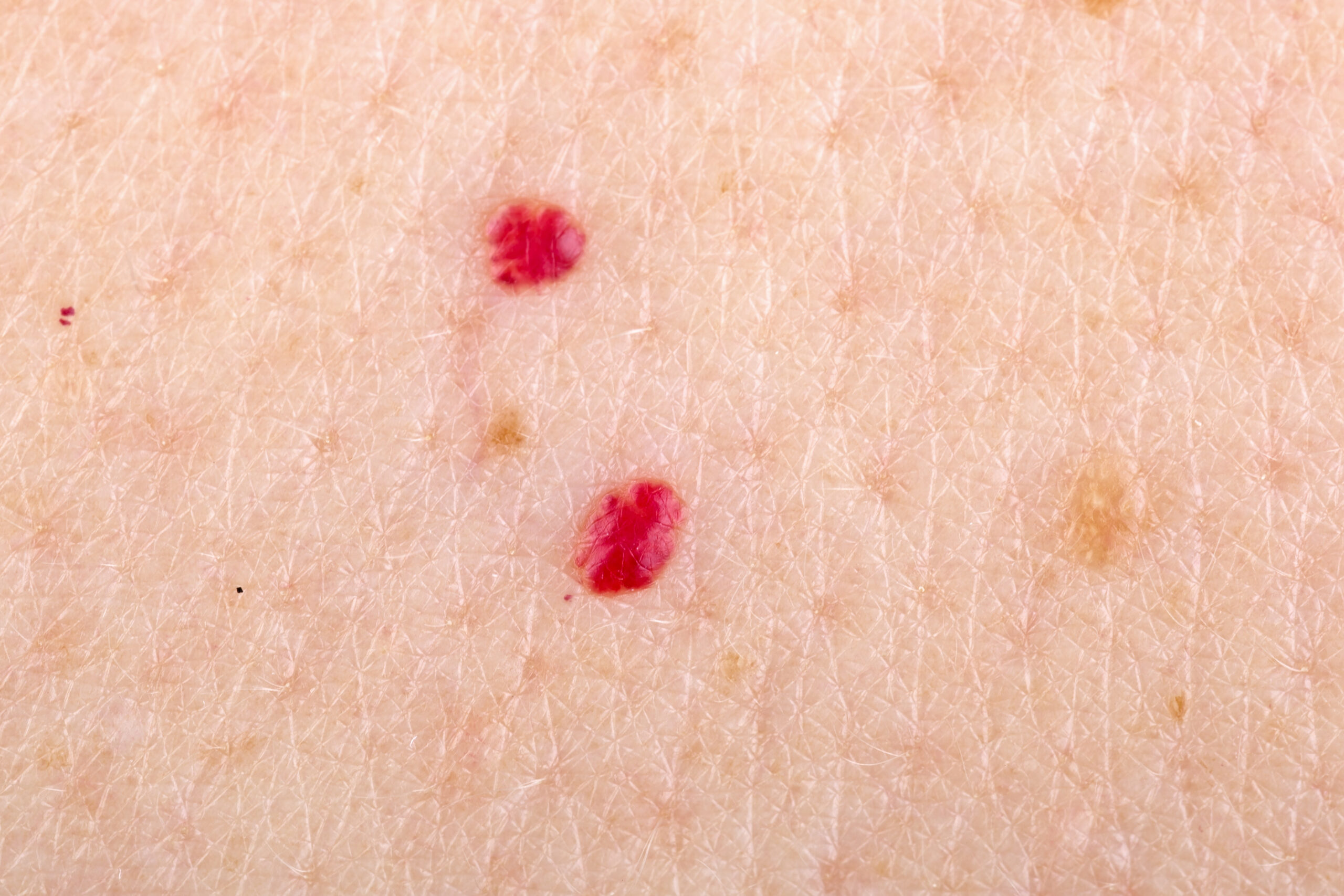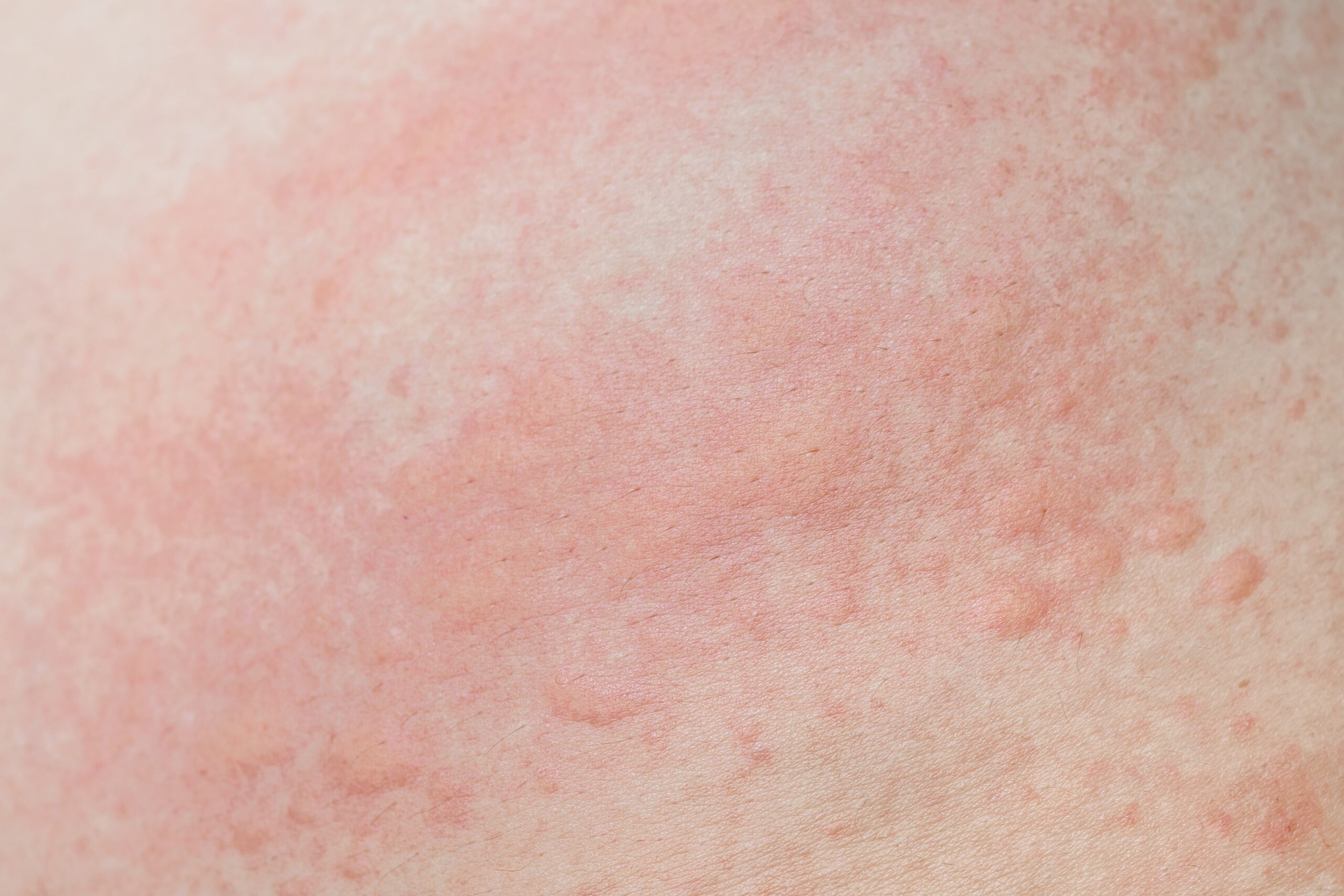If you’re anything like me, you’ll regularly check your body over for lumps, bumps, bruises and all else that’s out of place.
Call me paranoid or overcautious, but I like to know what’s going on with my body, and I like to be ready to seek medical advice if I ever find something that suggests an inexplicable change.
You can imagine my surprise, then, when I found a cluster of red dots on my shoulder one morning. As is so often the way these days, I immediately took to the internet to see what I could find in the way of an explanation.
And it turns out red dots on the skin aren’t all that uncommon. In fact, there’s a number of causes, so I thought it would be helpful to list them here for anyone who might find themselves in the same situation.
Now, it’s important to note that red dots on the skin can come in a number of sizes, shapes and hues, and what they denote can be equally broad. Some are completely harmless; others can have potentially serious causes.
Petechiae and Purpura
Taking the appearance of tiny red dots on the skin, these are the result of damaged blood vessels or capillaries. Causes can include stress, coughing, or certain medications. They are typically harmless, though can indicate underlying medical conditions such as platelet disorders.
Cherry Angiomas
These are seen as small, raised, bright red bumps, and come from an overgrowth of blood vessels. Cherry angiomas are completely harmless in the main, and are often more common as we age.

Heat Rash
Simple and fairly common depending on the environment. The ‘rash’ occurs when sweat becomes trapped in sweat ducts, producing a pattern of itchy, red dots on the skin.
Allergic Reactions
Self-explanatory. A result of an allergic reaction to food, substances, medications, or insect stings or bites, leading to skin redness and an itchy rash.
Folliculitis
An inflammation of hair follicles usually triggered by bacterial or fungal infections. The result is red, pus-filled dots that can cause discomfort.
Cellulitis
A bacterial skin infection that produces redness and skin swelling that feels warm to the touch. Cellulitis often requires medical attention and treatment via a course of antibiotics.
Impetigo
A contagious bacterial infection that is often easily spread between children. Impetigo is characterized by red sores that open, ooze fluid, and later form a crust.

Vasculitis
A condition involving inflammation of blood vessels. Vasculitis causes red dots to appear on the skin and can be linked to autoimmune disorders or infections.
Hemangiomas
These are birthmarks resulting from the abnormal growth of blood vessels. Occasional medical intervention may be needed, though they are generally harmless.
In conclusion, the appearance of red dots on the skin doesn’t necessarily signify anything to worry about. That said, it’s important to seek medical advice/attention if:
- Red dots are accompanied by fever, pain, or other discomfort.
- The dots rapidly increase in size, number, or intensity.
- These dots come with other symptoms like fatigue, weakness, or dizziness.



